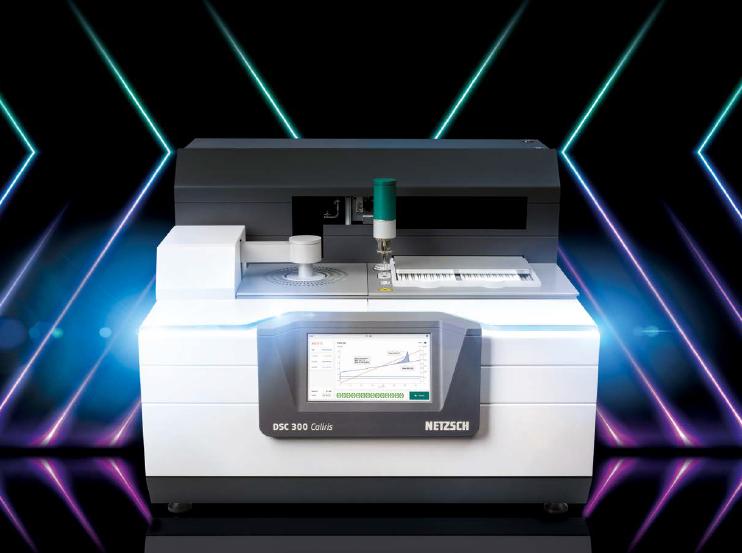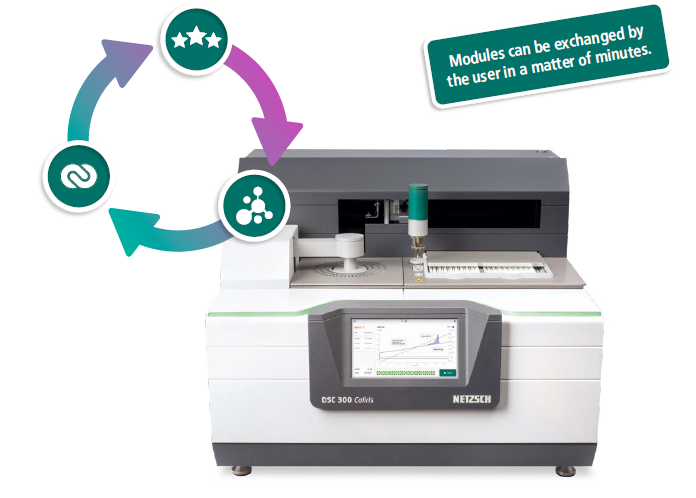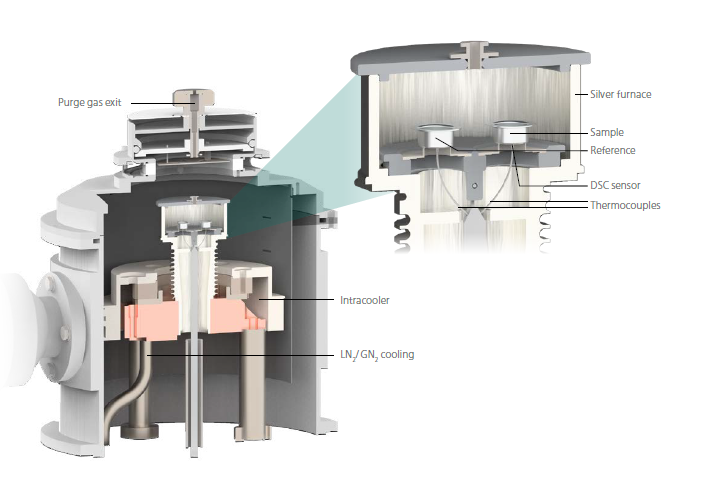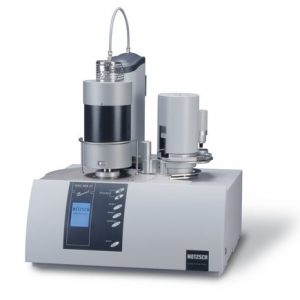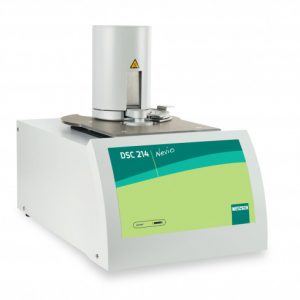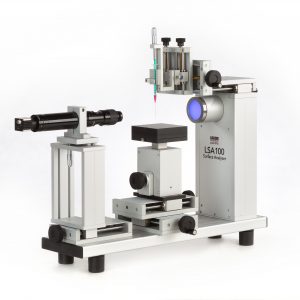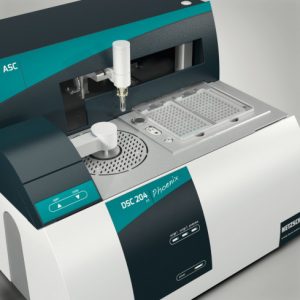Differential Scanning Calorimeter – DSC 300 Caliris® Supreme & Select
The DSC 300 Caliris® Is the Most Comprehensive, Most Reliable and Versatile DSC for Material Characterization on the Market.
No matter if you are working in research & development, quality control, contract testing or the specification of materials for certain applications, information about a material’s behaviour under changing temperatures and different atmospheres are important.
The DSC 300 Caliris® is in line with all relevant DSC standards, such as ASTM E793, ASTM E967, ASTM E968, ASTM E794, ASTM E1356, DIN 51007, etc.
The Differential Scanning Calorimeter -DSC 300 Caliris® can support material identification, process optimization, Quality control, Phase diagrams, Kinetic analysis and Compatibility.
Typical DSC Results
∙ Melting temperature and enthalpy
∙ Crystallization temperature and enthalpy
∙ Specific heat capacity
∙ Solid-liquid ratio (solid-fat content)
∙ Polymorphism
∙ Solid-solid transitions
∙ Liquid crystal transition
∙ Degree of crystallinity
∙ Curing, degree of cure
∙ Glass transition
∙ Oxidative stability
∙ Aging
∙ Purity
∙ Decomposition onset
Modular Design – Maximum Flexibility
Ever-accelerating new material developments, triggered by fast-moving mobility and technical trends, require continuous adaptability. The new generation of NETZSCH DSCs is based on a modular concept. The DSC 300 Caliris® is the only instrument of its kind with interchangeable and exchangeable sensor-furnace modules. The Supreme version of the DSC 300 Caliris® allows the exchange of modules, to be able to adapt to current and future needs.
The DSC 300 Caliris® Supreme – The Future-Proof Choice
This version offers a choice of currently three modules and can be configured to achieve an unrivaled maximum temperature range of -180°C to 750°C. It is possible to update your device at any time to take advantage of the latest technological developments or to change your application. The choice of the module used remains unrestricted. Just choose between broad temperature range, fast heating rates or high sensitivity as needed.
The DSC 300 Caliris® Select – Tailor Made for Your Application
In the Select version of the DSC 300 Caliris®, there is an initial choice between three currently available modules. The maximum temperature range available in the DSC 300 Caliris® Select is -170°C to 650°C. The Select version allows for the exchange of modules of the same type avoiding instrument downtimes.
Both versions come with integrated color touch display, an LED status bar and can optionally be equipped with an automatic sample changer.
Unique Automatic Sample Changer
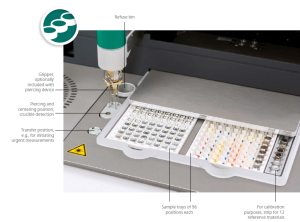
Three Modules for Different Needs:
H-Module (HIGH-PERFORMANCE MODULE)
-180°C TO 750°C
The premium module offers the highest sensitivity, accuracy and a very small peak-to-peak noise ratio and impresses with a perfect baseline and outstanding reproducibility – the gold standard for most DSC applications. In combination with the Supreme version, this module covers the entire temperature range from -180°C to 750°C. The H-Module is an ideal complement for advanced materials research and development in both industry and academia.
P-Module (THE POLYMER-MODULE)
-170°C TO 600°C
This module is perfect for all tasks in the polymer field. Its optimized low-mass furnace allows for heating rates of up to 500 K/min over a wide measurement range. Temperature profiles approximating real processing conditions can be realized. Additionally, one can speed up the measurements and thus save valuable time. The P-Module is perfect for research and development or quality control in the polymer processing industry
S-Module (THE STANDARD MODULE)
-170°C TO 600°C
The routine module combines high stability and optimized resolution of thermal effects. Laser-guided welding processes for the sensor disks and thermocouple wires yield true sensitivity and robustness. The monolithic DSC sensor features high metrological stability and optimal resolution. The easy to handle S-module is the module of choice for industry and contract laboratories when routine measurements are the main task.

